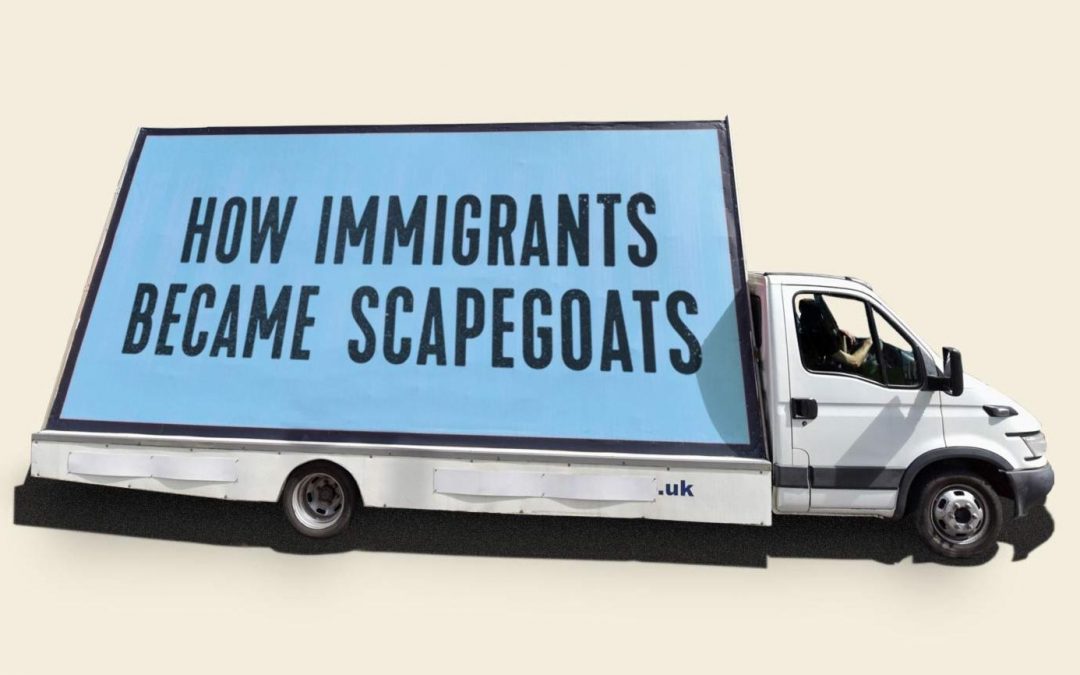The UK Home Office hostile environment policy is a set of administrative and legislative measures designed to make staying in the United Kingdom as difficult as possible for people without leave to remain, in the hope that they may “voluntarily leave”.
In 2012 Theresa May, who was the Conservative Home Secretary at the time, introduced the Hostile Environment Policy with remarks including that: “The aim is to create, here in Britain, a really hostile environment for illegal immigrants”.
What does this mean in terms of policy?
Deportation without appeals
In October 2013 May stated, “we will extend the number of non-suspensive appeals so that, where there is no risk of serious and irreversible harm, we can deport first and hear appeals later”
The policy also implemented a more complicated application process to get ‘leave to remain’ based on the principle of ‘deport first, appeal later’, whilst encouraging voluntary deportation through strategies including “Go Home” vans as part of “Operation Vaken”, as well as adverts in newspapers, shops, and charity and faith buildings used by ethnic minorities.
In 2018 the Home Office lost 75% of their appeals against applicants for refugee status who challenged rejections by the Home Office. Sonya Sceats, the chief executive of Freedom from Torture, said:
Long-drawn-out legal processes are traumatic for anyone, let alone those who have fled persecution. Having an impartial judge accept that you are at risk of torture or death if you are forced back, only to have this challenged all over again by the Home Office before yet another appeal panel, can have devastating consequences … important questions must be asked about the necessity for, and humanity of, these appeals.
ID checks and the denial of, housing welfare and health care
Additionally, through the implementation of the Immigration Act 2014 and Immigration Act 2016, the policy includes requirements for landlords, the NHS, charities, community interest companies and banks to carry out ID checks.
Criticisms
Discrimination in Housing
Charities, campaigners and landlords have criticized the hostile environment within the Right to Rent scheme, saying it is ‘unlawful and discriminates against tenants on the basis of their race or nationality’, and that it contributes to homelessness.
In January 2019, it emerged that tight restrictions on the right to rent (i.e. the right to become a tenant), under the “hostile environment” policy, had caused homelessness for some British citizens living in Britain.
Denial of Healthcare
Medical professionals have criticised the hostile environment for putting at risk, or even damaging, people’s health because it leads to individuals avoiding visiting doctors due to fears of having their details passed on to the Home Office or concerns they will be unable to afford the medical bills.
This has included refusal to perform a heart transplant and end of life care for a 38-year-old man.
Even within its own regulations, the hostile environment has led to people being wrongly denied urgent healthcare including cancer treatment. Research at the University of Manchester showed that the policy made health services difficult to navigate and negotiate.
Deaths in Custody
Since the inception of the hostile environment policy, a number of detainees have died in immigration removal centres.
Deportation of people at risk of murder or torture
The Home Office has been strongly criticized for its deportation, under the hostile environment policy, of people to countries where they are known to be at particular risks of being tortured or killed, such as Afghanistan and Zimbabwe. This practice is prohibited by Article 3 of the European Convention on Human Rights, which forms part of UK law as part of the Human Rights Act 1998.
Mistreatment of trafficking victims
In 2018, it emerged that under the “hostile environment” policy, victims of modern slavery and human trafficking in the U.K. had been jailed in breach of the Modern Slavery Act 2015 and that several had been deported by the Home Office.
In November 2018, the Home Office reduced financial support for victims of modern slavery but was subsequently ordered by the High Court to reverse the cut.


Recent Comments